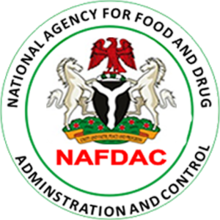By Chioma Umeha
The National Agency for Food, Drug Administration
and Control (NAFDAC) has called for expansion and sustenance of food
fortification programme in Nigeria.
According to the agency, this call becomes
imperative considering the devastating effects of malnutrition and poor dietary
intake in the country. Mrs Yetunde Oni, the acting Director General of NAFDAC,
made the call during a National Fortification Alliance (NFA) meeting in Lagos,
recently.
Speaking at the occasion, Oni noted that out of
about 21 widely known micronutrients, five of them – vitamin A, Iron, Iodine,
Zinc and folic acid – are of public health significance.
The NAFDAC boss said that they contribute
significantly to good health and are necessary for proper growth and
development of the body and for human survival.
According to her, infants, young children,
teenagers, pregnant and breast feeding mothers are prone to malnutrition hence
require additional nutrients all the time.
She emphasised that one in four children under the
age of five suffers from vitamin A deficiency and that 31 per cent of mothers
in Nigeria are iodine deficient.
She further said available statistics show that
nutrition contributes to over 50 per cent child mortality in Nigeria. These
statistics, she noted, make it unimaginable to question the importance of
micronutrients to achieving the socio economic development of any country and
attaining the Sustainable Development Goals (SDG).
Oni said that in order to meet UN’s set targets,
NAFDAC developed the Vitamin A Food Fortification Regulations in 2005.
The acting NAFDAC boss said that among other
contents, the regulations address issues ranging from prohibition of
manufacture, importation, exportation, advertisement, distribution and sale of
any designated food vehicle that is not fortified with vitamin A and other
elements as prescribed.
The NAFDAC DG also said that the regulations
address control of advertisement of vitamin A fortified foods – to be censored
and given permit before use.
Others are: Labelling requirements for vitamin A
fortified foods; Logo on all packaged Vitamin A fortified food-an eye with
letter ‘’A’’ inside it; packaging specifications and interpretations.
Also, regulations also covers penalty for
non-compliance, which includes administrative fines and prosecution legislators
without penalty for violations, will be futile.
She acknowledged that the support of international
organizations and relevant development partners such as Global Alliance for
Improved Nutrition (GAIN), United Nations Children’s Fund (UNICEF) and
Micronutrient Initiative (MI), Nigeria has attained remarkable success in
addressing micronutrient deficiency problems.
These successes include: Certification of Nigeria as
Universal Salt Iodization (USI) compliant in November/December 2005 and
celebrated in Istanbul, Turkey, on April 17, 2007; packaging of table salt in
smaller pack sizes of 1Kg, 500g, 250g and 100g;identification and procurement
of iodine test kits for rapid quality monitoring.
Others are: Upgrading of a laboratory for
Reference Standards at the University College Hospital (UCH), Ibadan. This
serves as Iodine Laboratory for Nigeria.
The next is institution of functional Iodine
Deficiency Disorder (IDD)/ USI Taskforce.
While pledging NAFDAC’s support towards the
success of the National Fortification Alliance Programme, Mrs Oni tasks
stakeholders to be committed to the mandate of the NFA.




